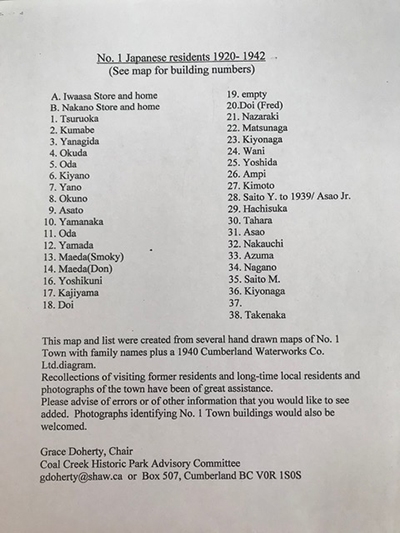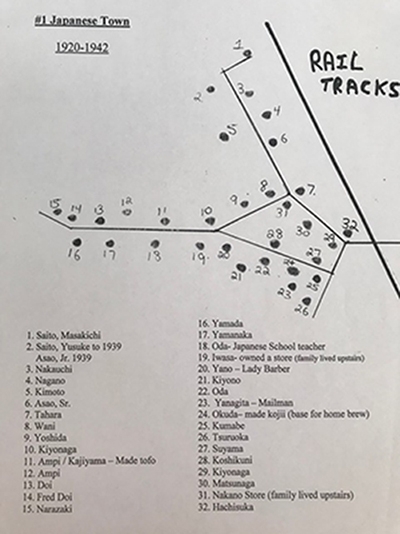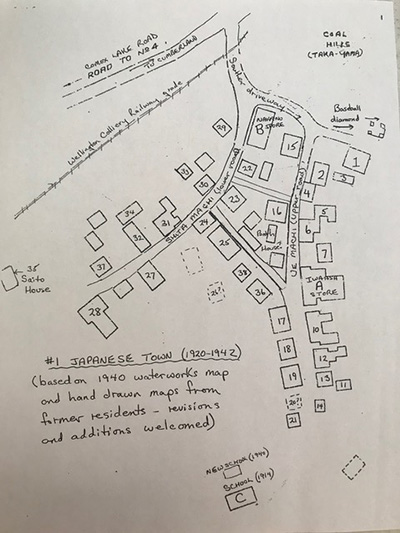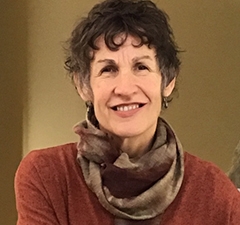Finding the Form with Lorin Jane Medley
By Lorin Jane Medley
“Who stays, who goes, and why? Who and what survives?”
Shikata ga nai (the poem) emerged in 2012 as an exercise in accentual verse. Four years later, I extracted its first-line imperative, ditched the rest, and began again. Record this: route rail-beds to carry coal. From prosody to local history: on my way to work, I drive past the abandoned coal tailings pile in the community of Union Bay on Vancouver Island, where in 1892 the first 100 Japanese labourers arrived by ship. My partner Ted often tells the story of how Japanese fishermen in Steveston, BC taught him to fish and provided a much-needed ballast through chaotic times. That was 1972—a scant thirty years after their parents and grandparents lost everything to the Canadian government’s shadow side. Later, Ted would give one of his daughters a Japanese name, Mariko.


A trip to Cumberland Museum and Archives leads me to hand-drawn maps from former residents of #1 Japanese Town along with a list of names and brief descriptors: Made tofu. Owned a store. Made koji. Lady Barber. School teacher.
I pass the Union Bay parking lot where recreational fishers launch their boats. Further south, a solitary oyster picker combs the beach. I think about my own grandparents, who immigrated from Scotland and England to make Vancouver Island their home. Their skin white, like mine. Who stays, who goes, and why? Who and what survives?


Revise and listen: what wants to emerge? Most of my poems have this long gestation period where I let them rest for a month, a year, and then pick them up again. With a bit of distance, my ear catches places where the poem clings to prosody at the expense of meaning. And yet, the syllabic emphasis is just what I need to move from 1887 to 1942 in six stanzas; it seems to say, “This happened, and then this,” in a way that leaves no doubt.
Shikata ga nai is a Japanese expression meaning, “It’s beyond my control, so it cannot be helped.” It refers to adapting, making the best of a bad situation, a perspective that is said to have helped Japanese families persevere after they were sent to internment camps during the war.
Considering contemporary politics here and south of the border, the irony is in the title.
I write about where I live. I am interested in documentary forms and possibilities, the many ways poetry can honour a life. Claudia Rankine’s Citizen, C.D. Wright’s One With Others, Soraya Peerbye’s Tell: poems for a girlhood.

Lorin Medley is a counsellor and writer from Comox, BC published in The Puritan, Portal, subTerrain, Refugium: Poems for the Pacific, and the forthcoming Sweetwater: Poems for the Watershed. She won the 2014 Islands Short Fiction Contest, the 2015 Books Matter poetry prize and was long listed for the 2016 Prism International Poetry Contest.
Photo by Julian Hochgesang on Unsplash .

